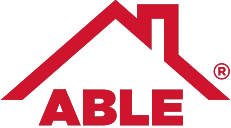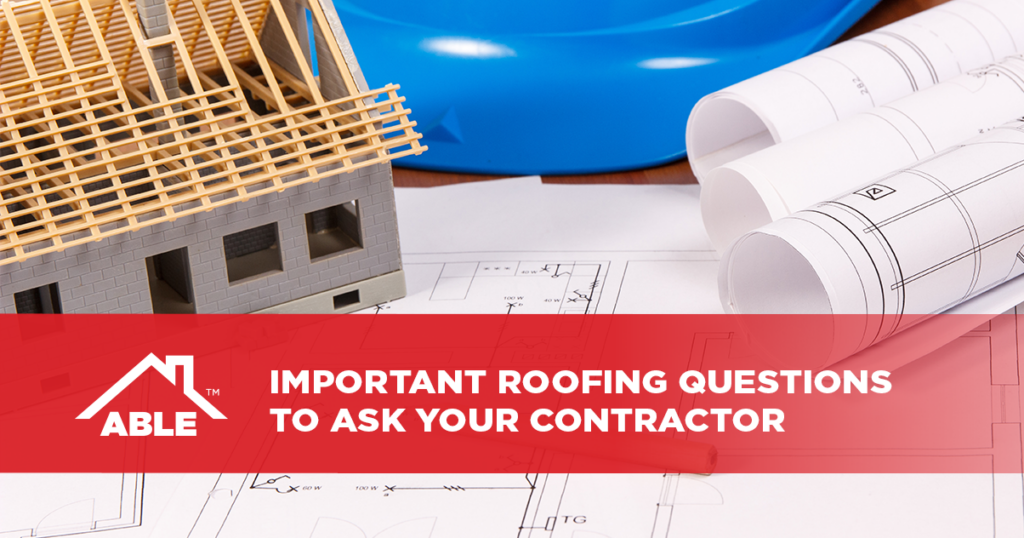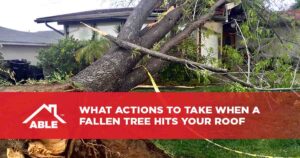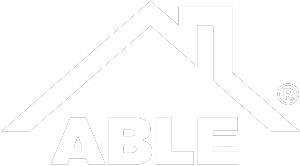Whether you are building a new home or are simply getting your roof redone, working with a roofing contractor is a key aspect of your project. These individuals can help to determine the extent of your project, the materials you need, and the length of time it will take to execute the job. Your contractor can be your point of contact while your roof project is underway.
The main benefit of roofing contractors is their ability to answer your questions. Though you likely have lots of inquiries of your own, it can be beneficial to prepare some ahead of time. There is a lot of ground you need to cover with your roofing contractor, and failing to ask the right questions could lead to a significant headache later on. By being thorough with your questioning, you can be sure that your project goes smoothly and that you know what to expect.
Our team at Able Roof treats every customer to open, honest communication about their project. Through this method, we find that our clients are more empowered to make their own decisions about their roof, and they are more confident in the results. These are some of the questions we find to be important to every roofing job and why you should be asking them of your roofing contractor.
1. Are your business and your workers properly licensed and insured?
This may seem obvious, but you need to be sure that the roofing company you are working with is a legitimate operation with professional workers. Often, small roofing companies are not properly licensed, making working with them a risky investment. There is a lot that can go wrong when workers are not trained and do not have their licenses.
Some roofing crews work without proper insurance or protection. This is an extremely dangerous choice not only for the workers but for clients as well. Roofing is a dangerous job, and workers can easily get hurt. If the company does not have insurance, you may be held liable for the damages. Legitimate roofing companies have insurance for their workers to ensure that any workplace accidents are covered and you do not have to worry about the cost.
2. How long have you been in business?
Experience really matters in the roofing industry. It is possible to be a legitimate operation without the expertise to do a job correctly. If you hire such a company, you could end up with a roof that is easily damaged, leaky, or otherwise unsafe for your family.
Working with experienced businesses gives you peace of mind and assurance that the job has been done correctly. Years of business indicate trust from the community and high-quality work. Do not try to save a few dollars by hiring an inexperienced company. It often ends up being more expensive in the long haul.
3. Do you have references, testimonials, or photos of your work?
It is perfectly acceptable to ask for references or indications of past work. This helps you to find the roofing contractor that is right for your needs and the job at hand. Just as with any other industry, contractors and crews have different styles, strengths, and weaknesses. Though you can gain some insight from online reviews, asking for references can help you to get a more accurate depiction of your contractor.
4. How local is your business?
Some roofing companies serve large areas or are nationally run. When you use a local roofing business, you are more likely to be able to speak with the owner if you need to. They may also have fewer other projects occurring at the same time compared with a national chain of roofing companies.
There are pros and cons to both local and national businesses. Be sure to clarify where potential businesses are based before you choose to work with anyone. The more you know, the more informed your decision can be.
5. Do I need a building permit?
Some roofing projects require permits, while others do not. This depends upon the scope and scale of the work, as well as the amount that it will disrupt others. Ask your roofing contractor whether your job requires a permit. If so, verify with them who will be pulling the permit. Contractors often do it on behalf of their clients, but this is not always the case. It’s best to be clear and straightforward about this to avoid confusion and delays.
6. When can my project start, and how long will it take?
Though there can be delays and unexpected circumstances that arise during a project, it is a good idea to have a general idea of the timeline before you start the project. This helps to maintain your expectations and allows you to plan ahead. Though crews do their best to be respectful of your home, there will be noise and added activity during your project. Understanding the timeline can help you to prepare your family.
7. How will you respect and secure my home?
In most cases, you will continue to use your home as normal while your roofing project occurs. It can be helpful to understand the steps that potential contractors take to improve your experience and keep your family safe. You can discuss rules and requests with your contractor during this time as well. For example, if you would prefer that the workers take off their shoes if they enter the home, you can make sure that your contractor knows this.
You will also want to know the ways in which your contractor will protect your home while they work. Without protection, construction can cause accidents and unnecessary damage to your home. Specifically, ask how your contractor will protect your driveway, gutters, and skylights if you have them.
8. How does material removal work?
Many contractors will use a large dumpster for the materials and shingles that they remove from your old roof. However, this is dependent upon the size of the job. You should clarify the material removal process with your contractor to make sure you know what to expect. In some situations, contractors have the building or homeowner arrange for a dumpster to be delivered, while others do it themselves.
9. Who is my point of contact during the project?
In some situations, the contractor is your point of contact. In other scenarios, there are other individuals who better attend to customer needs while a project is underway. You should always clarify to make sure you have someone you know to call when you have questions or concerns. It makes all lines of communication easier and can provide stress relief for all involved.
10. Is this the only way to solve the problem?
Sometimes, contractors make a diagnosis and a plan of action right away, while other times, they offer options. Be sure that your contractor does the latter. You want to feel confident in the project you do, and it is your right as a homeowner to understand all of the options available to you.
11. What are your warranties?
There are often several warranties in play when a roof is being replaced or repaired. Sometimes, shingle manufacturers offer warranties on their products. Contractors may guarantee their work for a certain amount of time as well. It is important to discuss this beforehand and to verify that you will get a written warranty. This documentation can help you to use the warranty if something should break or go wrong.
12. Who ensures quality?
Verify who will do the final inspection of your roof to ensure quality work. There should be someone besides the workers who takes a final look at the roof to give a professional opinion. Discuss who this will be and how the company will ensure quality overall.
13. Does my skylight or drip edge need to be replaced?
Skylights require replacement approximately every ten years. Roof projects present a great opportunity for skylights to be replaced because they often require the seal around the light to be broken anyway. Be sure your roofer has considered your skylight in your project outline.
Drip edges often need to be replaced when a roof is redone, but some parts may not need replacement. Discuss your drip edges with your contractor to see if there is the option of salvaging any of your current materials.
14. How does payment work?
Many contractors require a deposit, while others ask for payment at the end of the process. Make sure you know when payment is required so you can get a loan if you need to or budget accordingly.
You will also need to know what kind of payments are accepted. You may be able to pay online, but some roofers require checks or other payment formats.
Contact Able Roof
Our team at Able Roof is here to help you with any of your roofing needs. We are experienced and well-versed in these topics and more. We are proud to serve central Ohio’s roofs and families.
For more information on our services, reach out to Able Roof online today.








